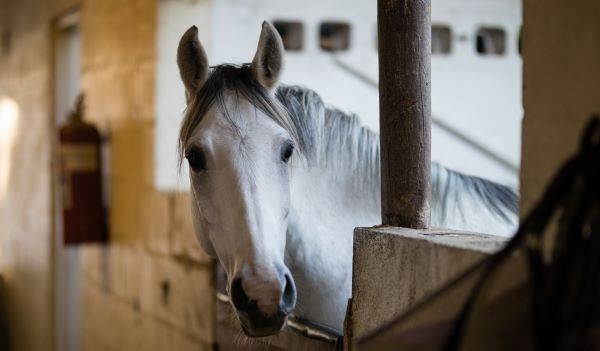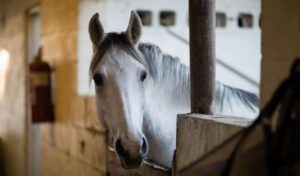Owning a horse is a satisfying and rewarding way to get out in the countryside and connect with an animal. However, it can also come with a range of its own difficulties. Horses can end up costing you a lot – not just monetarily, but also in time, effort and emotional investment. When it gets to winter, these difficulties can multiply, creating a whole new range of potentially difficult situations to get through. How should you care for a horse over winter, and what are our top tips for ensuring that your horse remains happy, safe and healthy all year round?
Equip Your Horse for Winter
The first thing to consider is how well equipped you are for the winter. Winter is likely to limit a horse’s grass intake – particularly as the weather worsens, and mud or hard ground makes grass less plentiful. This means that introducing forage and food stuffs to your horse’s diet is more important than ever over the winter months. It is also important to ensure that your horse has sufficient access to water over the winter – particularly as temperatures drop below zero.
Health Conditions for Horses over Winter
TO care for your horse over winter, you need to be aware of the potential health issues that all equids might face over the cooler months. Some of these are beyond your control, and need to be addressed by a vet. However, some are preventable issues that you can stop from becoming an issue with proper care for your horse over the winter. Cold weather can make you feel you need to rug your horse as thoroughly as possible. However, horses do not necessarily feel the cold in the same way we do – so over rugging them can actually lead to the development of skin conditions. Spending too much time in muddy fields can lead to horses being skin conditions, especially if you are not able to dry them off properly. This may lead you to considering bringing your horse inside over winter.
Stabling Over Winter – Rubber Mats
Stabling is not the immediate solution to all of the issues above. Many stables are concrete built. This means that they can radiate cold in a way that grass – even frozen grass does not. Horses warm themselves most by moving around, meaning that if the only surface they have to move around on is cold, they will end up colder for having been moved into stables over winter.
However, there is an easy solution to this. Rubber matting can make your stables a safer, more secure and warmer place for your horse over winter. They provide a stable, shock absorbing and cold-resistant flooring layer to make stabling your horse over winter a more comfortable experience. Horses should not be kept in stables all winter long, but rubber matting can help make stabling a better option – particularly if the weather has worsened, or your horse is having problems with conditions like mud fever and rain scald.
Rubber Matting Online offers a range of rubber mats to meet a variety of potential needs. Whether you need to cover and make paths more secure, or you need to insulate a whole section of your horse’s shelter, we have the range of supportive rubber mats to care for your horse over winter.


